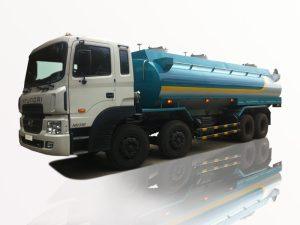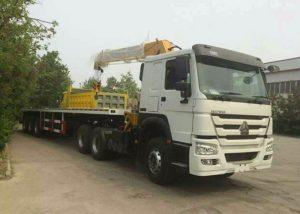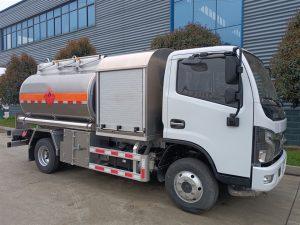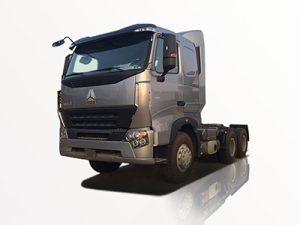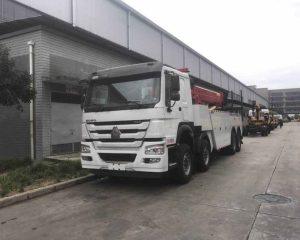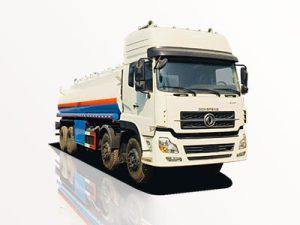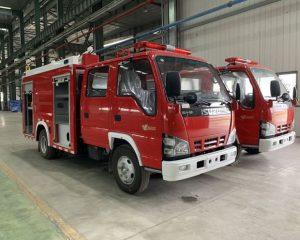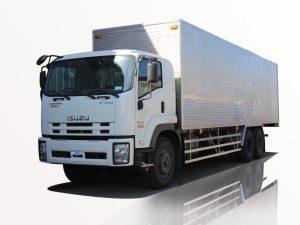Monday to Saturday - 8:00 -17:30
Tow Trucks Flatbed: The Ultimate Guide for Vehicle Recovery
Introduction
Tow trucks, particularly flatbed tow trucks, are essential tools in the vehicle recovery industry. They play a crucial role in handling various situations, from transporting broken-down vehicles to securely moving luxury cars without damaging their frames. Understanding how flatbed tow trucks work, their advantages, and the best practices for their usage can help vehicle owners, operators, and enthusiasts alike. In this comprehensive guide, we will explore everything you need to know about flatbed tow trucks, including their types, features, and much more.
What is a Flatbed Tow Truck?
A flatbed tow truck, also known as a rollback or slide-back tow truck, features a flat, level bed on which vehicles can be loaded easily. Unlike traditional tow trucks that use a hook and chain system, flatbed trucks provide a more secure and safer method of transporting vehicles. This section will explain the components and operational mechanics of flatbed tow trucks.
Components of a Flatbed Tow Truck
- Flat Bed: The horizontal platform on which vehicles are loaded.
- Hydraulic Lift: Mechanism that tilts or lowers the bed to facilitate loading.
- Winch: Used to pull vehicles onto the flatbed when necessary.
- Safety Straps: To secure the vehicle during transport.
- Cab and Chassis: The vehicle section that houses the driver’s seat, controls, and engine.
How Flatbed Tow Trucks Operate
The operation of a flatbed tow truck is relatively simple. The driver positions the truck next to the vehicle that needs towing. They then deploy the hydraulic lift to lower the flatbed to the ground. The vehicle is either driven onto the flatbed or pulled using the winch, after which safety straps secure the vehicle for transport.
Advantages of Using Flatbed Tow Trucks
Flatbed tow trucks offer numerous advantages compared to traditional tow trucks, making them the first choice for many towing services. Here are the key benefits:
1. Vehicle Safety
With a flatbed tow truck, the entire vehicle rests on the flat surface, minimizing the risk of damage during transport. Additionally, without the need for lifting or dragging, there’s less chance of scraping the tires or damaging the undercarriage.
2. Versatility
Flatbed trucks can transport a variety of vehicles, including motorcycles, luxury cars, and trucks. They are particularly useful for vehicles with low ground clearance that are prone to damage from traditional towing methods.
3. Enhanced Stability
Because of their design, flatbed tow trucks provide better stability during transit. The vehicle remains flat and secure, reducing the chances of shifting or rolling over, especially on uneven terrains.
4. Ease of Loading and Unloading
The hydraulic lift and winch make loading and unloading easy for drivers. This feature is especially useful when dealing with non-running vehicles. Drivers can adjust the bed’s angle to facilitate vehicle loading, saving time and effort.
5. Damage Prevention
Using a flatbed truck reduces wear and tear on vehicles by eliminating the need for dragging or lifting, which can lead to damage over time. This is particularly important for high-value or vintage cars.
Types of Flatbed Tow Trucks
There are several types of flatbed tow trucks, each designed to meet specific towing needs. Here’s a closer look at the main types:
1. Classic Flatbed Tow Truck
The classic flatbed is the most common type, featuring a horizontal platform that can be raised and lowered. It’s ideal for transporting a wide range of vehicles.
2. Integrated Flatbed Tow Truck
This type combines a flatbed with integrated towing capabilities. It often incorporates equipment for both towing and recovery, making it a flexible option for towing services.
3. Medium-Duty Flatbed Tow Truck
Designed for mid-sized vehicles like vans and trucks, medium-duty flatbed tow trucks can handle more significant loads while maintaining efficiency.
4. Heavy-Duty Flatbed Tow Truck
Heavy-duty flatbeds are built to transport large vehicles such as buses and construction equipment. These trucks feature reinforced frames and powerful winches to accommodate heavier loads.
Choosing the Right Flatbed Tow Truck
When selecting a flatbed tow truck for your needs, consider the following factors:
1. Vehicle Size
Ensure that the tow truck can accommodate the size and weight of the vehicle you need to transport. Refer to the manufacturer’s specifications for guidance.
2. Purpose of Use
Consider if you need the flatbed truck primarily for personal use, a repair shop, or a towing business. This will help determine the specifications and features required.
3. Budget
Flatbed tow trucks come in various price ranges. Assess your budget and explore options that best meet your financial constraints while providing necessary features.
4. Fuel Efficiency
This is more critical for businesses, as operational costs can significantly affect profitability. Look for trucks with good fuel economy ratings.
5. Brand and Reliability
Research reputable brands that offer reliable flatbed towing solutions. Customer reviews and feedback can be valuable in gauging quality and performance.
Practical Tips for Using Flatbed Tow Trucks
Proper usage of flatbed tow trucks can make a substantial difference in safety and efficiency. Here are some practical tips:
1. Pre-Check the Tow Truck
Before heading out, always perform a pre-check on your truck. Inspect brakes, lights, tires, and safety features to ensure everything is functioning correctly.
2. Secure the Load Properly
Use high-quality safety straps to secure the vehicle on the flatbed. Ensure that the vehicle cannot shift during transit to prevent accidents.
3. Drive Responsibly
When on the road, drive carefully, especially when making sharp turns or sudden stops. The additional weight can affect the handling of the tow truck.
4. Know the Terrain
Familiarize yourself with the area you will be towing in. Be cautious of steep driveways or roads, which may pose loading and unloading challenges.
5. Train Properly
Ensure that all operators are adequately trained in using flatbed tow trucks. Proper training reduces accidents and ensures efficient operations.
Cost of Flatbed Towing Services
The cost of flatbed towing services can vary widely based on several factors, including distance, vehicle type, and time of service. This section provides a breakdown of what you might expect.
| Distance | Typical Cost |
|---|---|
| 0-5 miles | $75 – $100 |
| 5-10 miles | $100 – $150 |
| 10-50 miles | $150 – $250 |
| 50+ miles | Variable, typically $250+ |
Common Uses for Flatbed Tow Trucks
Flatbed tow trucks serve various purposes. Here are some common uses:
1. Vehicle Recovery
When a vehicle breaks down or is involved in an accident, flatbed tow trucks are often called for recovery due to their safe loading process.
2. Transporting Classic Cars
Classic and luxury cars require special attention. Flatbeds can transport these vehicles without risk of damage, making them a preferred option.
3. Moving Heavy Equipment
Flatbeds are often used to transport heavy machinery and equipment for construction, due to their load capacity and stability.
4. Dealer Transportation
Car dealerships frequently use flatbed tow trucks to move new and used vehicles between locations. Their convenience and safety make them ideal for this task.
Frequently Asked Questions About Flatbed Tow Trucks
1. What is the difference between a flatbed tow truck and a traditional tow truck?
Flatbed tow trucks have a flat, horizontal platform, allowing for safer transport without dragging the vehicle. Traditional tow trucks use a hook and chain system, which can be riskier for certain vehicles.
2. Can flatbed tow trucks handle motorcycles or small vehicles?
Yes, flatbed tow trucks are excellent for transporting motorcycles and smaller vehicles safely.
3. What should I do if my vehicle breaks down?
If your vehicle breaks down, contact a towing service that operates flatbed trucks for the safest transport. Provide clear information about your vehicle’s location and condition.
4. Are flatbed towing services more expensive than traditional towing?
Flatbed towing services can be slightly more expensive because of the specialized equipment involved. However, the benefits of safety and reduced damage outweigh the costs in many cases.
5. How do I choose the right towing service?
Look for a reliable company with positive customer reviews, competitive pricing, and appropriate certifications. Ensure they have the right equipment for your specific needs.
6. What are the legal requirements for towing services?
Legal requirements can vary by state or region. Generally, towing services must be licensed and insured and comply with local regulations regarding vehicle transport.


